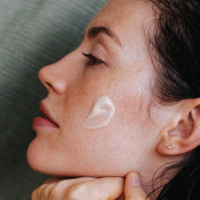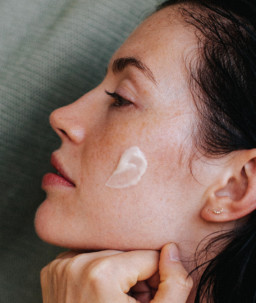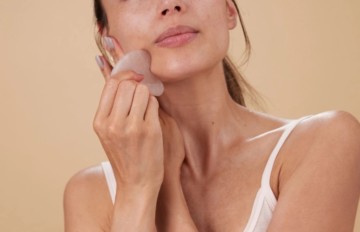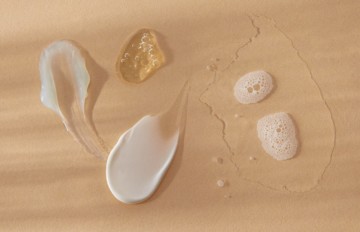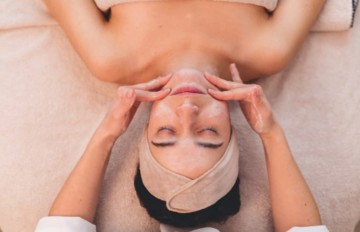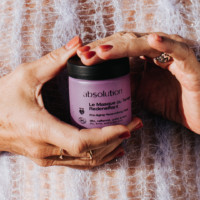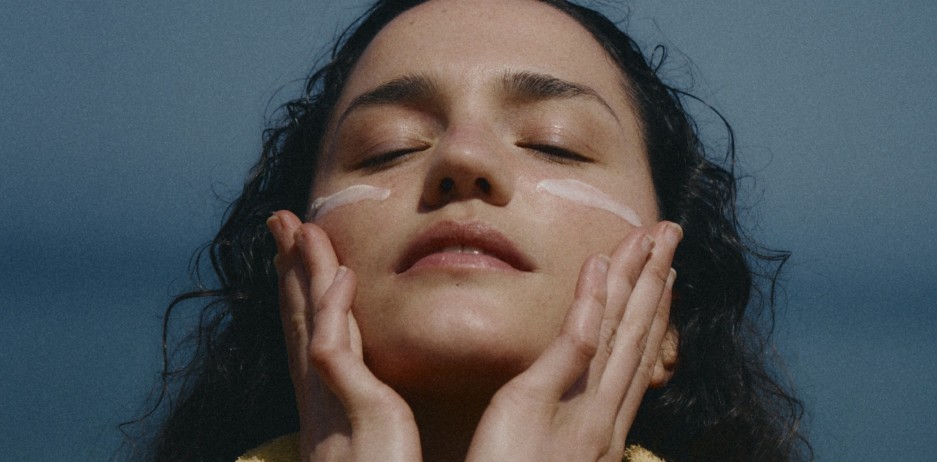
The Benefits Of Sun And How To Enjoy It Safely
Summer is such a great season! The sun changes our mood, eases our winter worries and brightens our faces a little more. While we tend to protect ourselves with sunscreen and fabrics, it’s better to let its sunrays slide gently into our skin to benefit from its qualities. However, there are a few steps you can take to ensure safe exposure. Our naturopath, Aurélie Canzoneri, shares her valuable advice with us.
1. Sun Helps Synthesize Vitamin D
« Ideally, you should enjoy the sun in the morning and at the end of the day, around 5 p.m., and avoid applying protective cream to your legs and arms, as these areas are less prone to sunburn and absorb the vitamin better. On the other hand, I don’t recommend laying under the sun all day!»
Aurélie Canzoneri
Moderate exposure to the sun strengthens the immune system, promotes the absorption of calcium and phosphorus into the bones and reduces inflammation, facilitating cell regeneration and even regulating certain skin diseases, such as psoriasis and eczema. While it is recommended to supplement yourself with vitamin D during winter, you might as well enjoy its most natural form on sunny days. Make sure your skin is also well moisturized to avoid skin dehydration!
2. Sun Promotes Positive Energy
While the sun is known to help overcome depression, it also increases levels of serotonin (the hormone of happiness) in the body, says Aurélie Canzoneri. This neurotransmitter, found in the intestines and blood platelets, is also present in the brain, where it plays a role in mood regulation.
Sunlight promotes its stability and increases endorphin production, bringing a sense of well-being to the body and balancing appetite. This is why it‘s not uncommon for serotonin imbalances to develop in winter due to the absence of warmth, sometimes generating anxiety.
3. Sun Helps Regulate Sleep

Serotonin is also well-known for being a precursor to melatonin, the sleep hormone.
“The sun acts on our circadian rhythm, which represents our 24-hour biological clock,” our naturopath continues. “By maintaining sufficient levels of serotonin, melatonin production stabilizes and helps us sleep better.”
Sunlight, particularly blue light at the end of the visible spectrum, therefore facilitates melatonin production and even helps reduce cortisol levels, the stress hormone. Observe how your eyelids grow heavy in the sunlight. Your body relaxes and unwinds thanks to its powerful warmth…


The Risks of Sun Exposure
However, UVA and UVB rays can be profoundly dangerous for our bodies. While these UV rays accelerate the formation of wrinkles, dark spots, and cause a loss of elasticity, they are also responsible for skin cancers, such as melanoma or carcinoma, and eye damage if we do not adequately protect our eyes!
Failing to stay hydrated can also lead to dehydration, with symptoms such as intense thirst, fatigue, dizziness, and headaches. There is also the risk of “heat stroke,” which occurs when the body overheats and can no longer regulate its temperature.
How To Protect Yourself From The Sun

If Aurélie Canzoneri advises us to expose ourselves outside of peak hours, choosing the right sunscreen is equally crucial. According to the specialist, an SPF 15 to 30 is insufficient for any sun exposure. It’s better to opt for SPF 50, which blocks about 98% of UVB rays for all skin types. A fragrance-free formulation is also better tolerated by sensitive skin. Sunscreen should be complemented with a hat, cap, loose clothing, and sunglasses!
It’s also important to select the right product. Many ingredients found in mass-market bottles are harmful to both the body and the ocean, such as oxybenzone, octinoxate, homosalate, and parabens—deeply disruptive to endocrine systems, contributing to coral bleaching and disrupting marine wildlife hormones. Choose mineral filters like zinc oxide, which organic agriculture brands primarily use. Labels like “Reef-Safe,” “Eco-Friendly,” and “Slow Cosmetics” (promising body and environmentally-friendly care) can help you make the right choice. Now, enjoy the sun in moderation!
